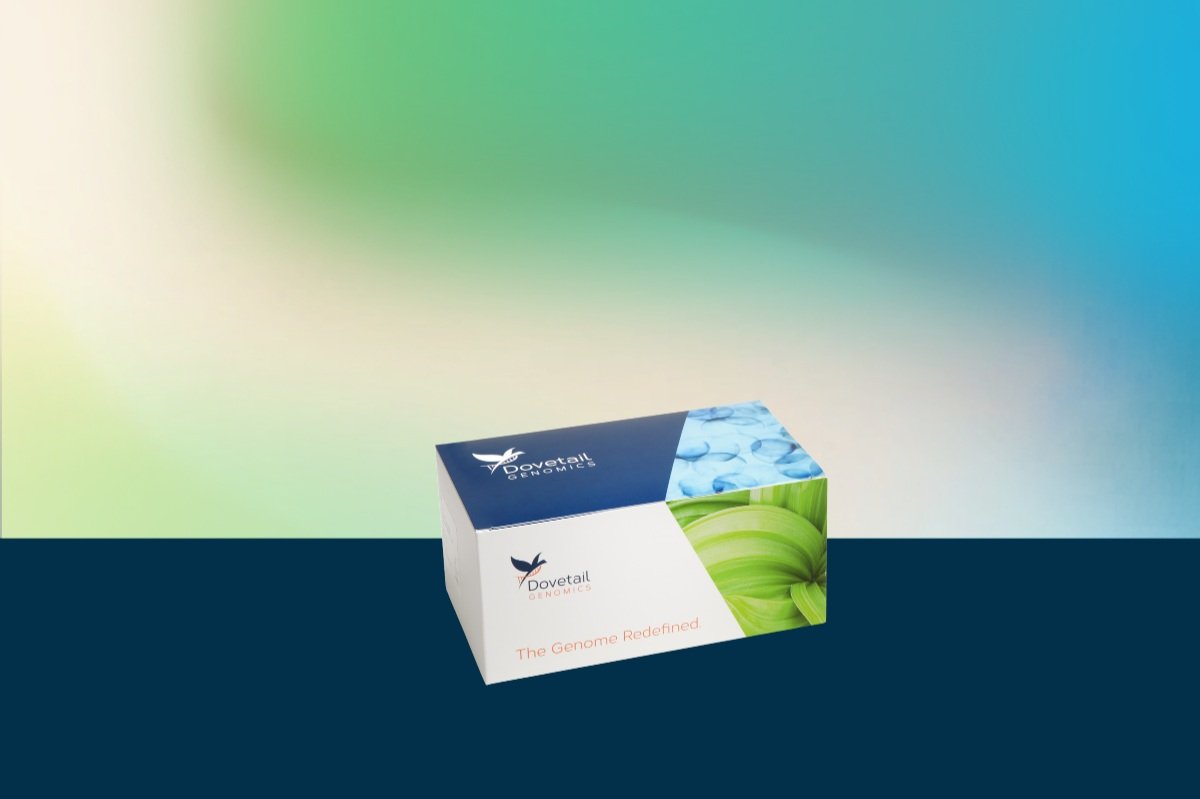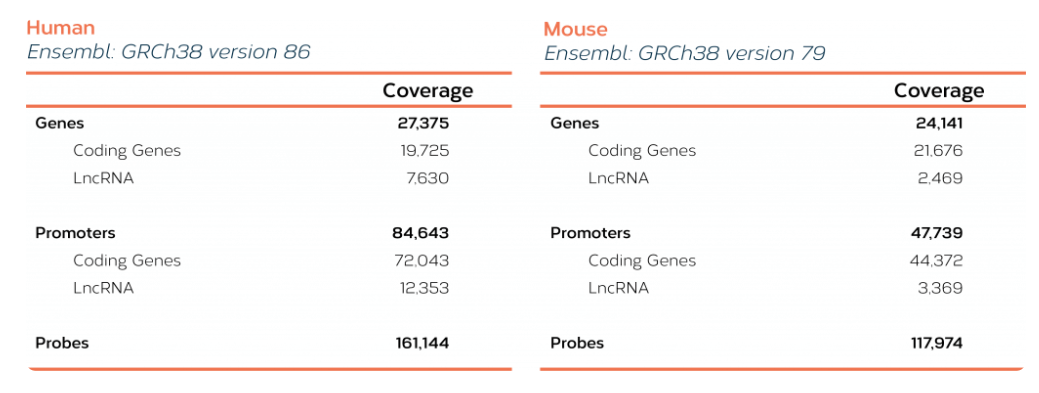The Dovetail Targeted Enrichment Panels can be used when a more restricted approach is desired because the hypothesis is clearly and more narrowly defined, reducing overall study costs. Often referred to as promoter capture Hi-C, this method enriches for genomic regions of interest by ‘pulling down’ pre-selected genomic regions with capture probes before next-generation sequencing (NGS).
Covering greater than 98% of human and mouse promoter regions, Dovetail Pan Promoter Enrichment panels are perfect for probing known and discovering unknown distal regulatory elements interacting with known promoters. The human design covers over 80,000 promoters associated with more than 27,000 coding and non-coding genes, while the mouse design covers over 47,000 promoters and 24,000 coding and non-coding genes.













